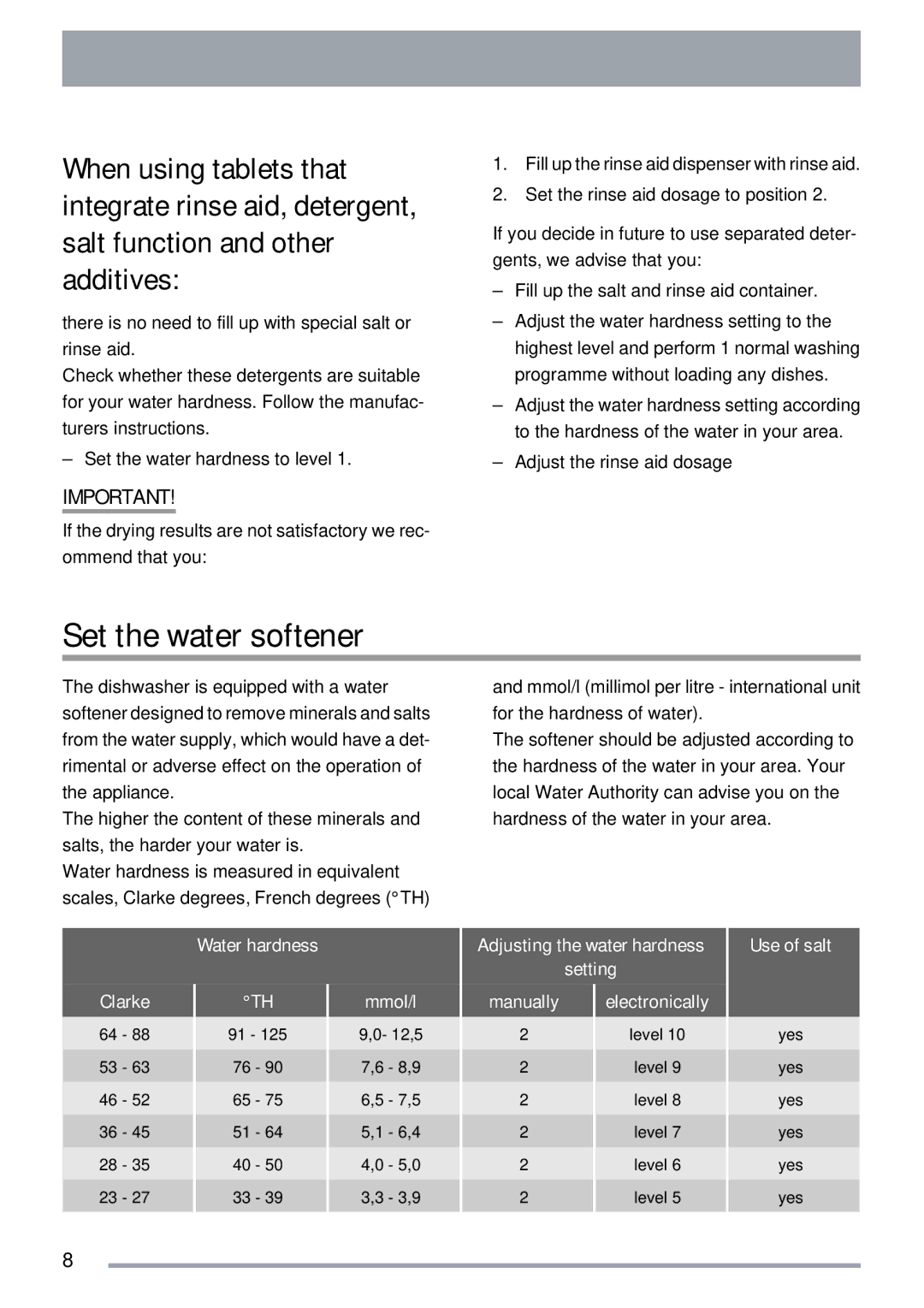
When using tablets that integrate rinse aid, detergent, salt function and other additives:
there is no need to fill up with special salt or rinse aid.
Check whether these detergents are suitable for your water hardness. Follow the manufac- turers instructions.
– Set the water hardness to level 1.
IMPORTANT!
If the drying results are not satisfactory we rec- ommend that you:
1.Fill up the rinse aid dispenser with rinse aid.
2.Set the rinse aid dosage to position 2.
If you decide in future to use separated deter- gents, we advise that you:
–Fill up the salt and rinse aid container.
–Adjust the water hardness setting to the highest level and perform 1 normal washing programme without loading any dishes.
–Adjust the water hardness setting according to the hardness of the water in your area.
–Adjust the rinse aid dosage
Set the water softener
The dishwasher is equipped with a water softener designed to remove minerals and salts from the water supply, which would have a det- rimental or adverse effect on the operation of the appliance.
The higher the content of these minerals and salts, the harder your water is.
Water hardness is measured in equivalent scales, Clarke degrees, French degrees (°TH)
and mmol/l (millimol per litre - international unit for the hardness of water).
The softener should be adjusted according to the hardness of the water in your area. Your local Water Authority can advise you on the hardness of the water in your area.
Clarke
64 - 88
53 - 63
46 - 52
36 - 45
28 - 35
23 - 27
Water hardness
°TH
91 - 125
76 - 90
65 - 75
51 - 64
40 - 50
33 - 39
mmol/l
9,0- 12,5
7,6 - 8,9
6,5 - 7,5
5,1 - 6,4
4,0 - 5,0
3,3 - 3,9
Adjusting the water hardness
setting
manually |
| electronically |
2 |
| level 10 |
2 |
| level 9 |
2 |
| level 8 |
2 |
| level 7 |
2 |
| level 6 |
2 |
| level 5 |
|
|
|
Use of salt
yes
yes
yes
yes
yes
yes
8
